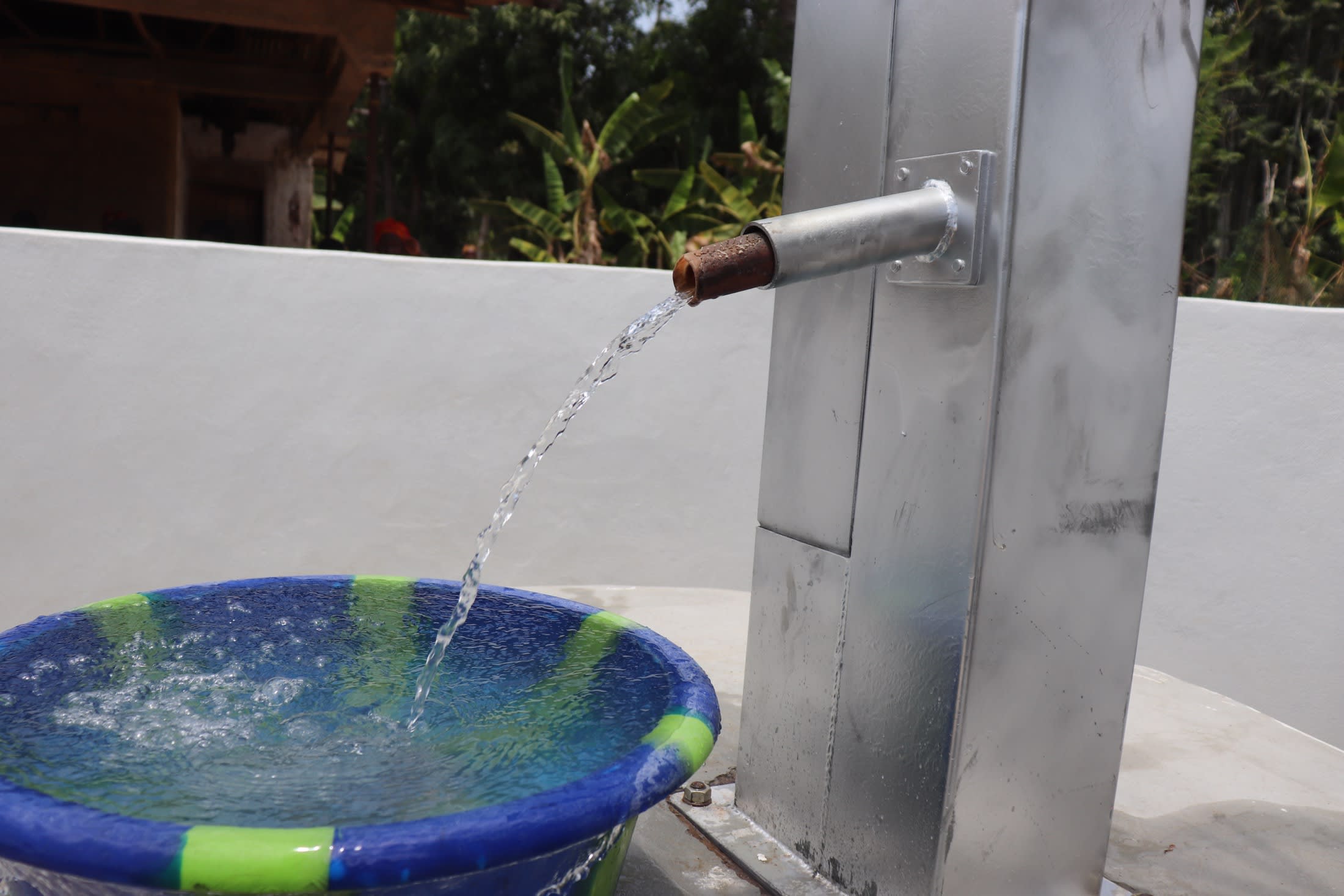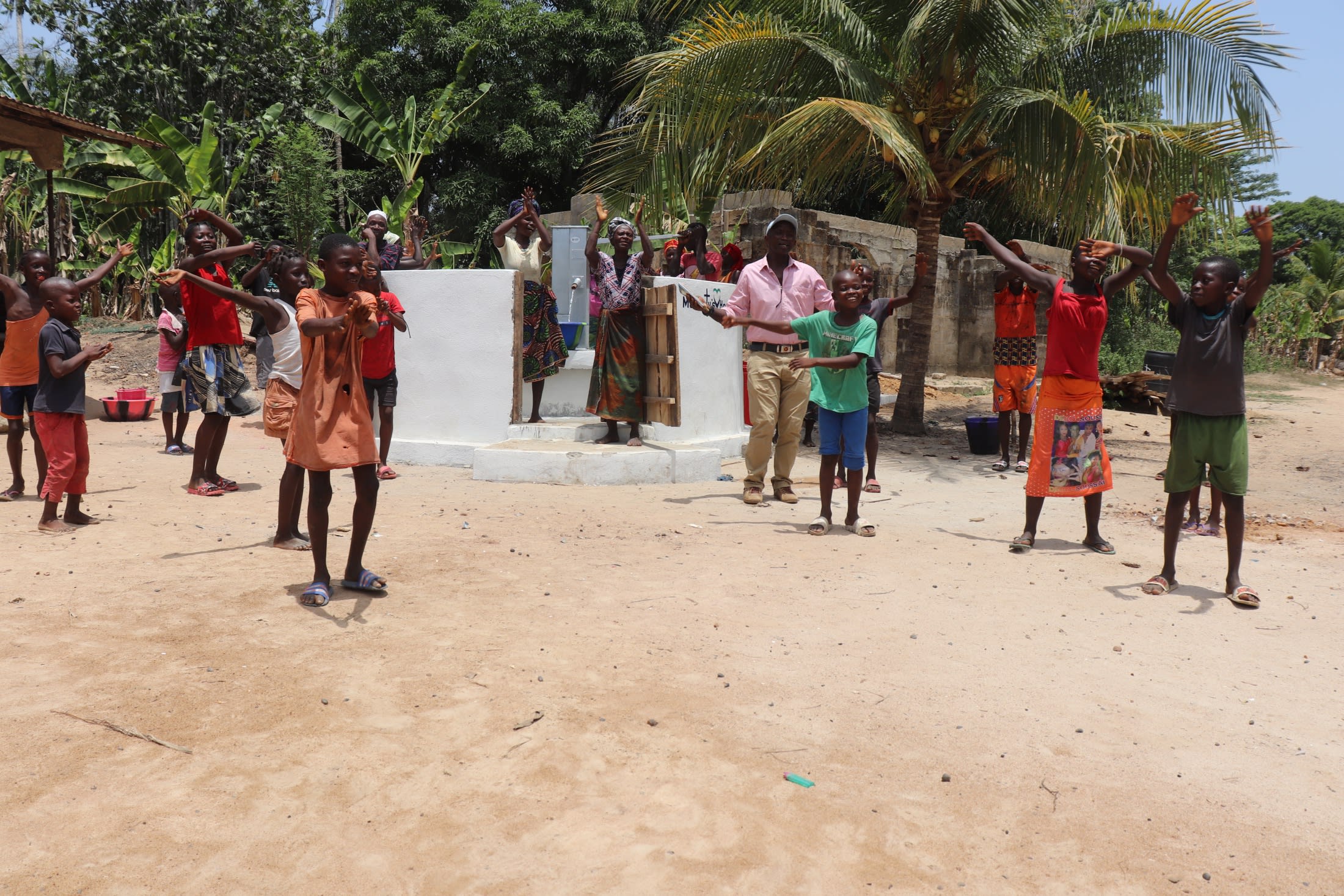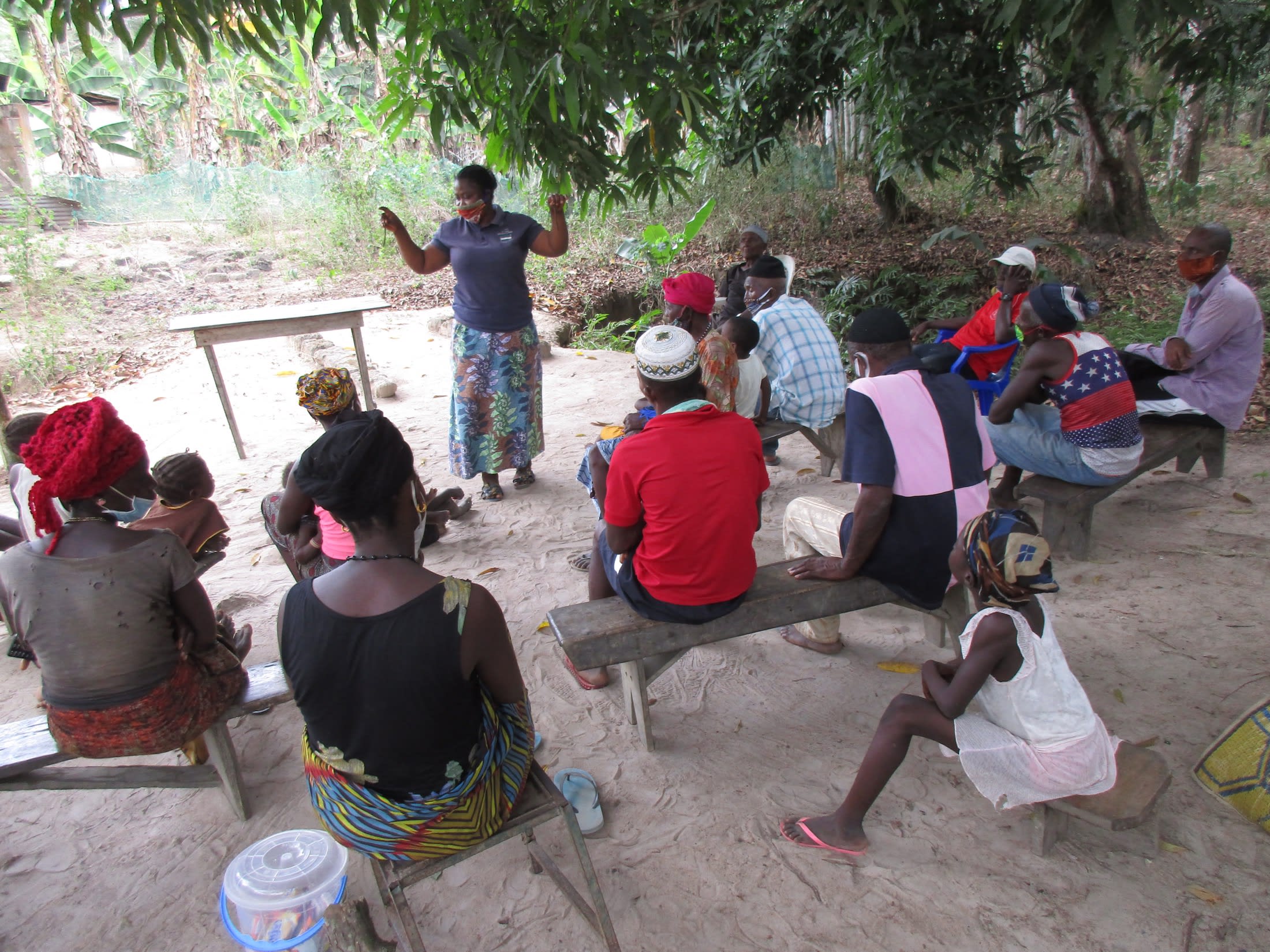In the morning hours, Masinneh Village resembles a ghost town with men, women, and children on their various ways to make a living or go to school. The most common livelihoods are farming, hunting, and burning charcoal. The majority of farmers are also master hunters that know how to study the tracks left by animals of all kind. The animals they hunt, using dogs, traps, and guns, include deer, porcupines, monkeys, squirrels, and other large rodents in the bushes.
The homes that have stood the test of time are made with mud blocks with no cement plastering. Unfortunately, the water crisis faced by the 205 people here is getting worse every day. It is a family affair to get up very early in the morning to fetch water. There are two main water points that the people here use, but one is completely dry, and the second is slowly drying up to the point that people are only allowed to fetch drinking water.
The people spend more time fetching water than they do praying or anything else, observed our teams. The children are up very early in the morning to ensure that the cleanest water is fetched before everyone else gets the chance to contaminate the source further. The hand-dug well is in poor shape, leaving it open to contaminants that cause waterborne diseases.
During our visit to the community, we met up with Abdulahi Kamara. His father's death and the failing health of his mother brought him back from the city to his home village. He works the family farm, hunts, and sells charcoal to support his family. Abdulahi shared the story that his daughter became pregnant a year ago. When she went into labor, Abdulahi did not have enough money to get her to the clinic, so she had to give birth at home. With no reliable water source, he had to turn to the open swamp to have enough water for his daughter and grandchild. Fortunately, both are healthy, but the ordeal caused a lot of stress and put the mother and child at risk due to the lack of clean water access.
"I was very thankful and hopeful when it was over. God spared the two lives," he said.
Here’s what we’re going to do about it:
Well Rehabilitation
The well marked for this overhaul is dry for a few months every year and needs major work to supply adequate, clean water to the community year-round. The pump will be removed, and a hand auger will be lowered inside and powered by a drill team. This hand auger will allow the team to drill several meters deeper to hit a sufficient water column to ensure the well supplies water throughout all seasons.
As the team drills, casing will be installed, transforming the bottom of this hand-dug well into a borehole. PVC piping will connect this lower system directly to the pump, a construction that we know will also improve the quality of water.
Once this plan is implemented, everyone within the community will have access to safe drinking water in quality and quantity, even through the dry months.
Hygiene and Sanitation Training
There will be hygiene and sanitation training sessions offered for three days in a row.
After our visit, the hygiene and sanitation trainer decided it would be best to teach community members how to build a tippy tap (a hand-washing station built with a jerrycan, string, and sticks). They will use these tippy taps for handwashing demonstrations and will also teach about other tools like dish racks and the importance of properly penning in animals.
This training will also strengthen the water user committee that manages and maintains this well. They enforce proper behavior and report to us whenever they need our help solving a serious problem, like a pump breakdown.

 Borehole Well and Hand Pump
Borehole Well and Hand Pump


































